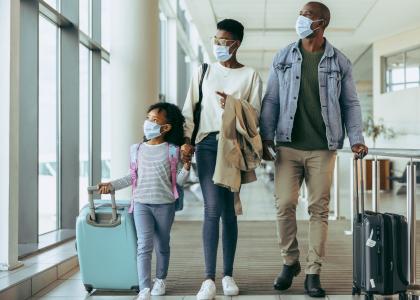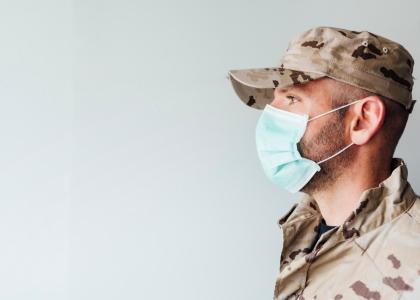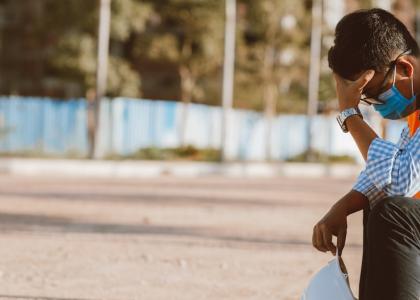Hispanic
Tracing the Health Consequences of Family Support during the COVID-19 Pandemic

This project fills this gap in the research creating a multidimensional contextual database linked to the Health and Retirement Study (HRS) and the Panel Study of Income Dynamics (PSID) to examine the effects of the pandemic across generations of American families. The HRS and PSID have collected data on the health and well-being of individuals and their family members for decades.
Mitigating Effects of Telehealth Uptake on Disparities in Maternal Care Access, Quality, Outcomes, and Expenditures During the COVID-19 Pandemic

Telehealth represents a promising opportunity to reducing disparities in maternal health access, quality, and outcomes, given its substantial range of opportunities.
The Longitudinal Impact of the COVID-19 Pandemic and Related Multi-Level Mitigation and Contextual Factors on Health and Socioeconomic Outcomes of Individuals and Families From a Vulnerable Population

A “shovel ready” project leveraging the existing longitudinal data collected in the Fragile Families and Childhood Wellbeing Study (FFCWS), the longest running population-based US birth cohort, collected before and throughout the pandemic linked with multilevel COVID-19 related health, social and economic measures, and prospective COVID-19 impact assessments to examine these issues.
Transdisciplinary Research, Equity and Engagement Center for Advancing Behavioral Health

This project will develop an innovative Transdisciplinary Research, Equity and Engagement Center for Advancing Behavioral Health (TREE Center) that will expand on the knowledge, research capacities and cross-sectoral collaborations established by the former NM CARES Health Disparities Center.
Advancing Research on Mechanisms of Resilience (ARMOR): Prospective Longitudinal Study of Adaptation in New Military Recruits

The overarching goal of this study is to improve our understanding of resilience processes related to the economic, social, and personal impacts of the COVID-19 pandemic and their downstream mental health outcomes in National Guard soldiers.
Southwest Health Equity Research Collaborative

The overarching goals of the project are to (1) document impacts of relaxed restrictions for telemedicine and mHealth; and (2) assess implementation of MAT “take-homes” for people in substance use disorder treatment in rural, underserved, and minority communities in Arizona in the wake of COVID-19.
Defining Trajectories of Linguistic, Cognitive-Communicative and Quality of Life Outcomes in Aphasia

This project aims to examine the effect of COVID-19 on telerehabilitation access and the cognitive-communicative and psychosocial health outcomes for patients with aphasia.
Policies on Racial/Ethnic and Socioeconomic Disparities in Mental Health and Healthcare Utilization

The goal of this study is to leverage, expand upon, and link existing national data sets to test the hypothesis that county-level public health and social policies have affected disparities in mental health and healthcare utilization.
Impact of the COVID-19 Pandemic on Patients with Alzheimer's Disease and Alzheimer's Disease Related Dementias

In this project, we will examine the impact of changes in outpatient and inpatient care on clinical event rates and deaths among older patients with Alzheimer’s Disease and Alzheimer’s Disease Related Dementias living in the community.
A New Database to Measure the Association Between Income, Race, and Mortality: Inequality in Longevity During and Beyond the COVID-19 Pandemic Disparities

This project will build a public database of mortality rates incorporating socioeconomic and demographic variables across the U.S. population. Researchers will be able to analyze the sources of disparate impacts of COVID-19 on mortality across subgroups, with the aim of understanding how to reduce health inequality.